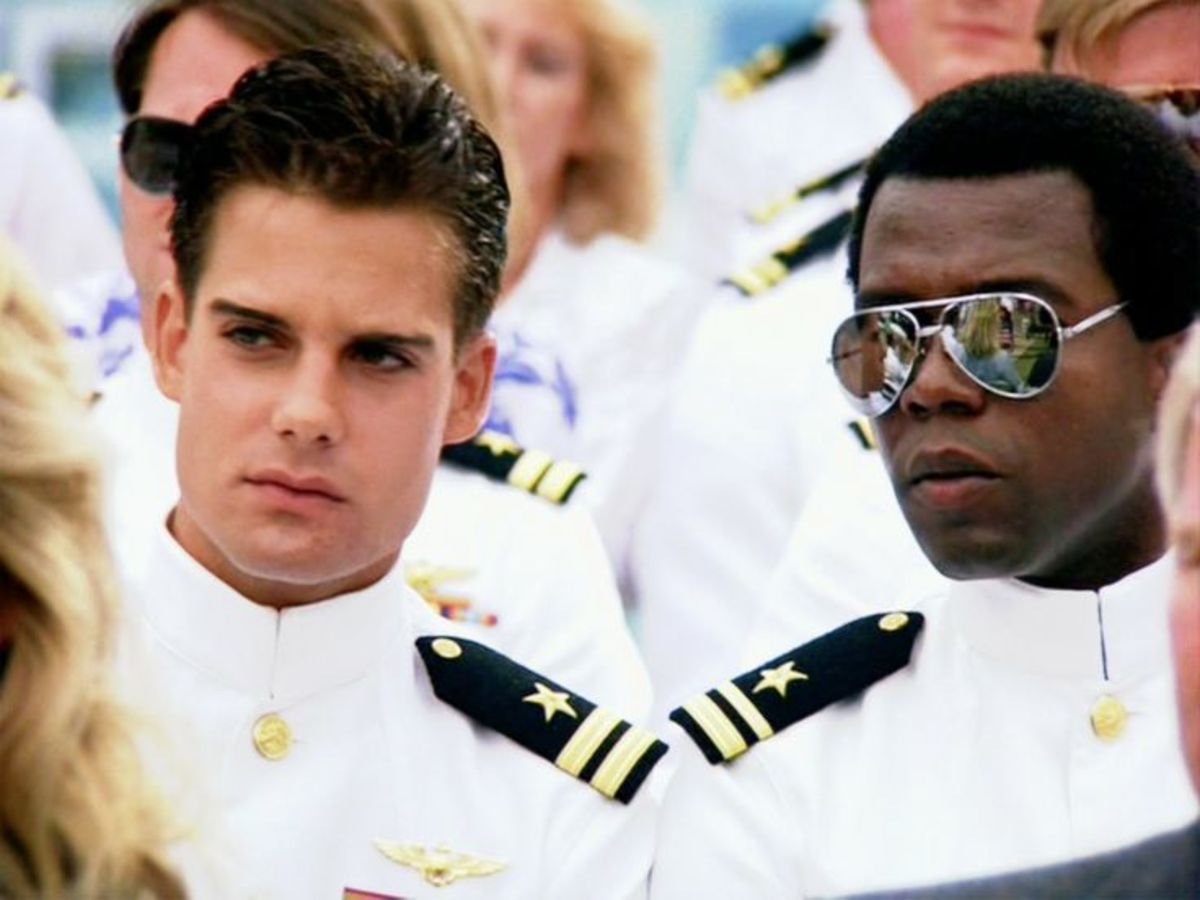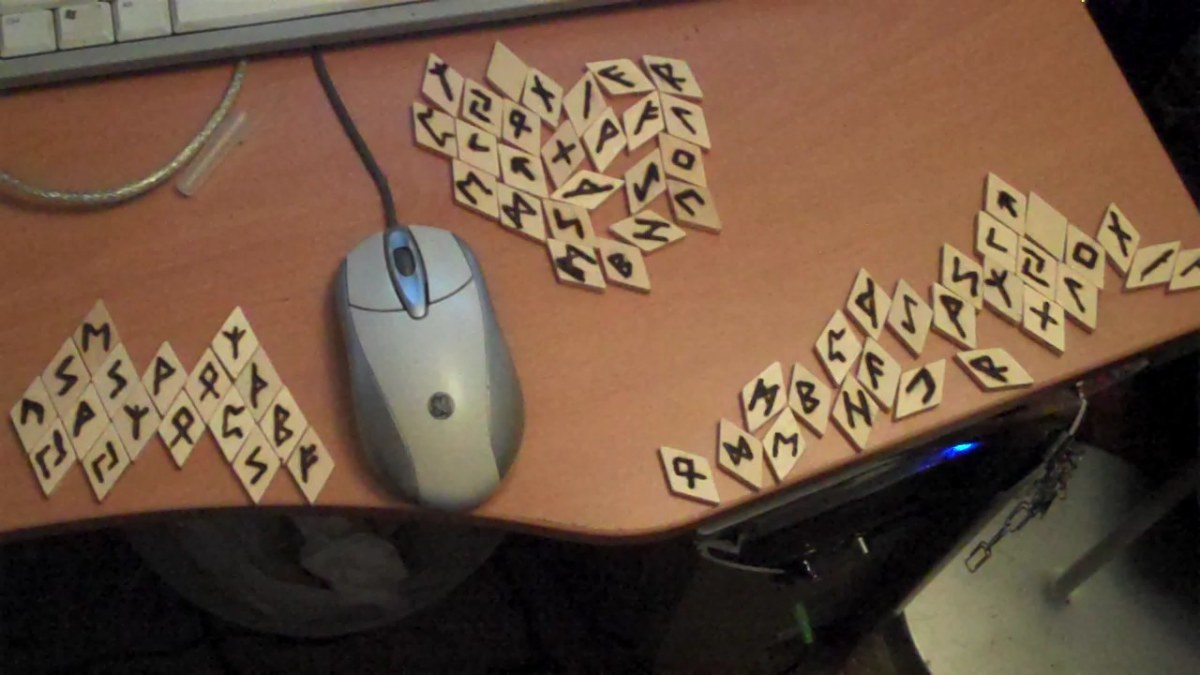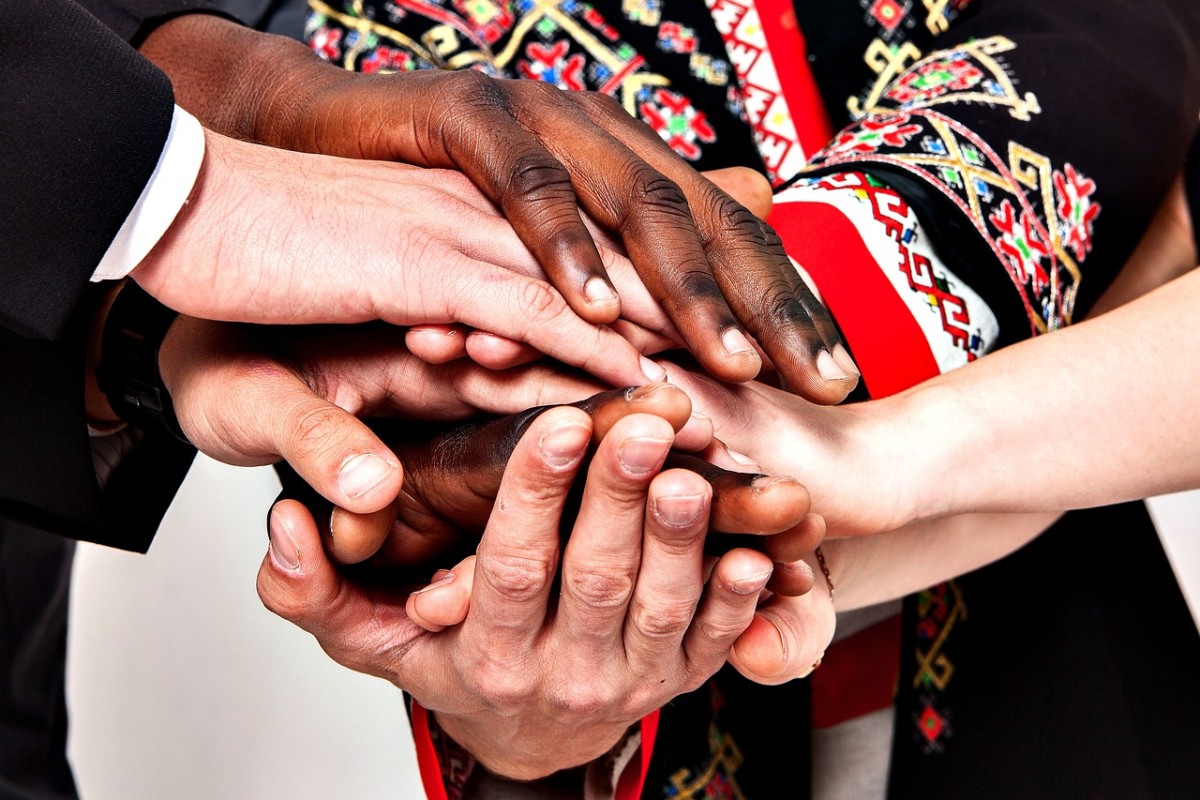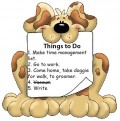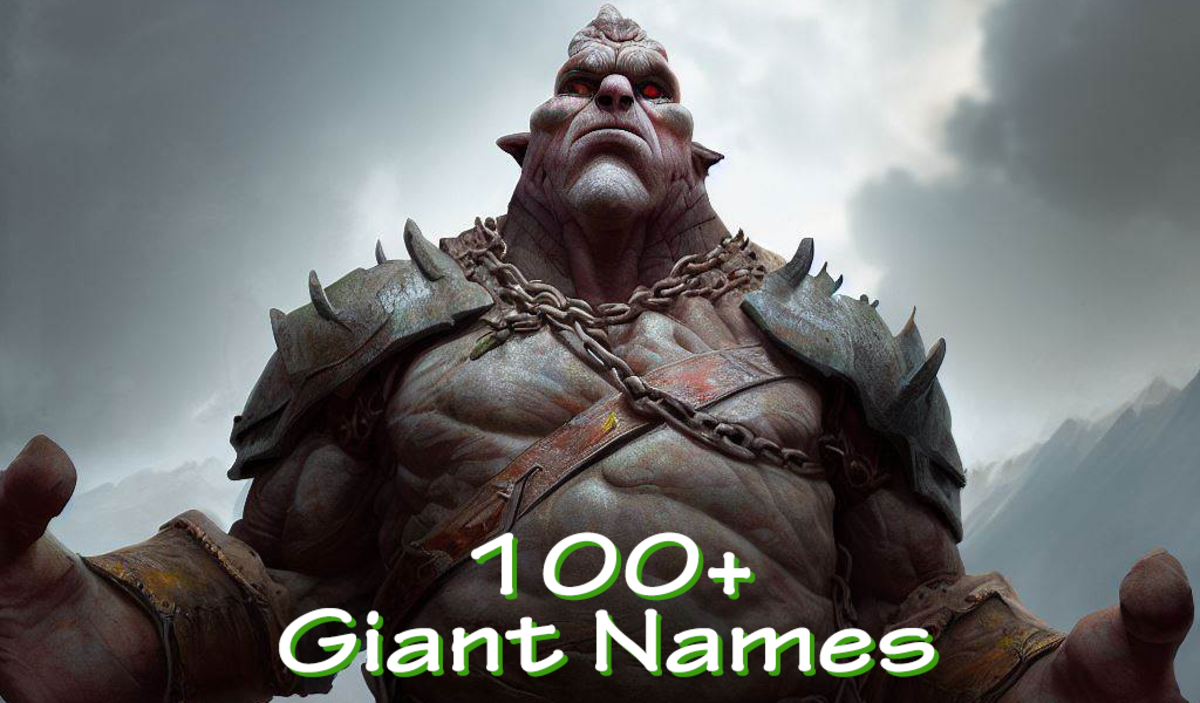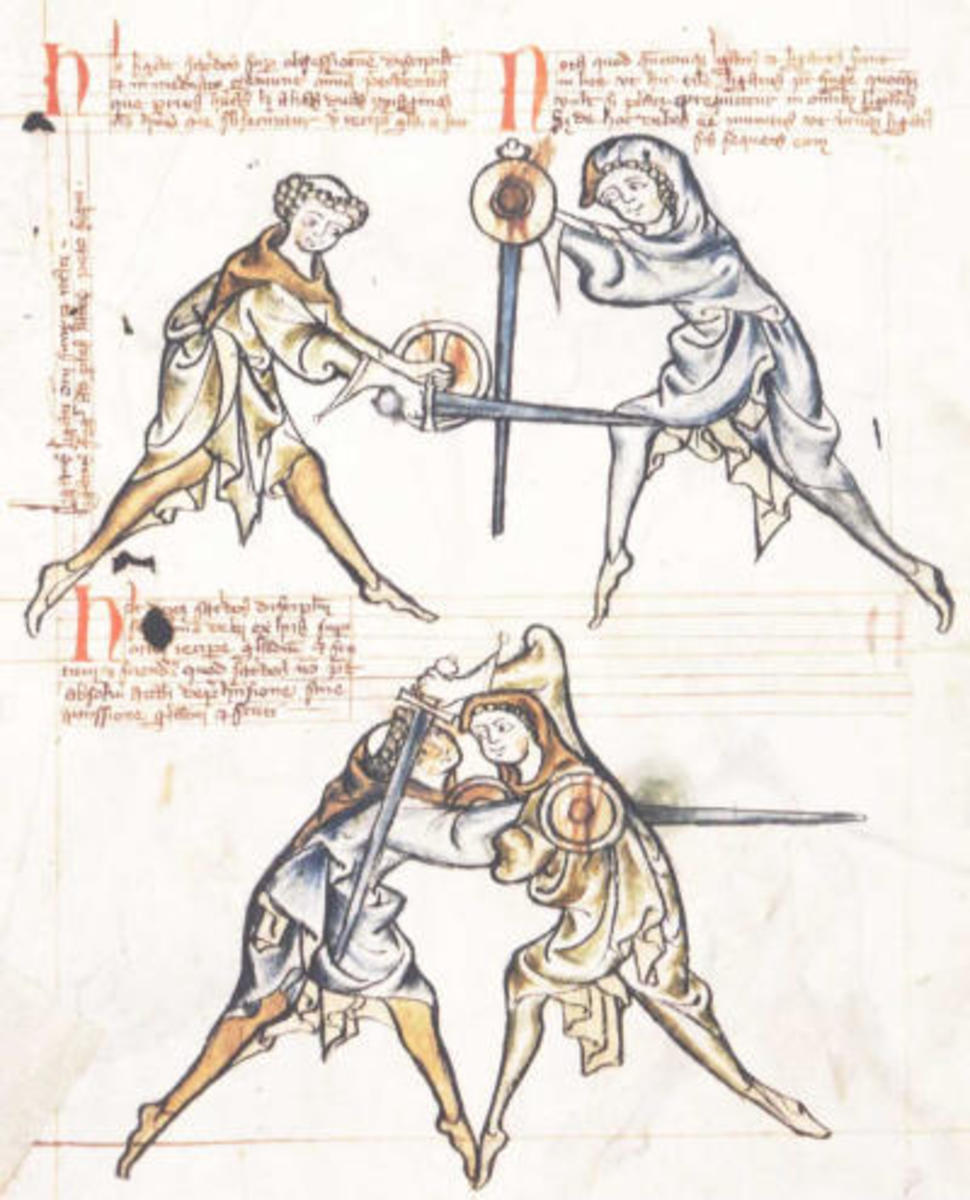How to Write Speculative Fiction that Might Come True
"Diversity" and "How To" in One Hub
This Hub will combine a "How To Write Speculative Fiction" piece with a piece about diversity. Why? Because, the steps involved in guiding you to write your speculative fiction story (that might come true) actually involve finding YOUR hidden complexity. Diversity is hidden complexity. I'll get more into that as you read on.
So. You want to write Speculative Fiction that might one day come true? Find out how I did it and follow my example below. The way to predict what might come true is to be uncomfortably honest. Often times we write what we think the world wants to hear from us, just like we speak and act the way we think other want us to in our day to day lives. However, it is the honesty beneath it all that truely dictates our patterns of behavior. Even if we are lying to ourselves, the truth guides the way.
So in order to find that hidden thing that is guiding action, one must be divergent. Diversity is the unique story within you that you hide because it doesn't fall in line with the main narrative of society.
While you're reading, and after you finish the Hub, think about your own life and those moments that stand out that make you complex. How does this give you a different perspective than people around you? When you're writing your speculative fiction piece, stay in that "outsider" space and look at the world through that "outsider" perspective.
I will share parts of the audio drama, "Columbus Myth" with you in this Hub so that you can follow my journey as I speak about how I created the characters and what parts of my divergent thinking and diversity contributed to their creation. Hopefully this will guide you in finding ways to create a piece that is guided by your truth.
Listen to the 5th Episode of my Speculative Fiction Series
Trust Yourself
If there are any young black girls out there reading this blog, please don't be discouraged. If you're thinking that you aren't trusted, or heard, or that you don't have freedom to talk about reality, do not fall into despair. Years ago when I started writing Columbus Myth I was in total disbelief when all the truth I had to once conceal became public knowledge due to our conversation on race in America during terms of our first non-White president. I never thought I'd be able to just speak freely about reality. It felt so weird not having to use "Publizenego." For example, wearing my natural hair and talking about my perspective publicly. You may be feeling like you have to use Publizenego now, but have hope. Being able to speak freely about reality IS possible. We both lived to see that possibility come true! So imagine what comes next for you. If you're having to use Publizenego now, make a game out of it. And most importantly, know you're not alone.
I had a wonderful teacher who (was both my 1st and 3rd grade teacher and) encouraged me to write. She recognized the attention I gave to arts, crafts, and storytelling, and told me that I had a special knack for writing. I took that to heart. I kept notebooks on hand like Harriet the Spy after that, and was proud of what I wrote, but content to keep my stories to myself. Maybe writing is something you will enjoy! Think of your story in four parts; Orphan, Wanderer, Warrior, Martyr. Begin your story with your character somehow orphaned. In other words, something your character once knew is taken away or your character ends up in a totally foreign place. Think of your character as a fish out of water. Then, your character is a wanderer, looking around for some purpose, direction, or meaning. She makes mistakes that lead to further obstacles and new adventures. Once your character learns how to navigate through her world, she will seize the sword and become a warrior fighting back against those obstacles along her journey. And, at the end your character somehow gives up what they thought they wanted sacrificing a part of themselves in order to receive something they originally didn't know they needed.
"Hidden Complexity" is Mona's story. This entire Columbus Myth series is meant for those in between the typical stories of Black and White. Like, immigrants, brown people, people of color, white people who were raised in Black and Brown communities, or whatever the case may be. Mona's story is my tool for addressing the complexity of social identity in our world. I use much of my own experience to tell her story.
Try Having Each Character You Create Represent a Divergent Point in Your Life
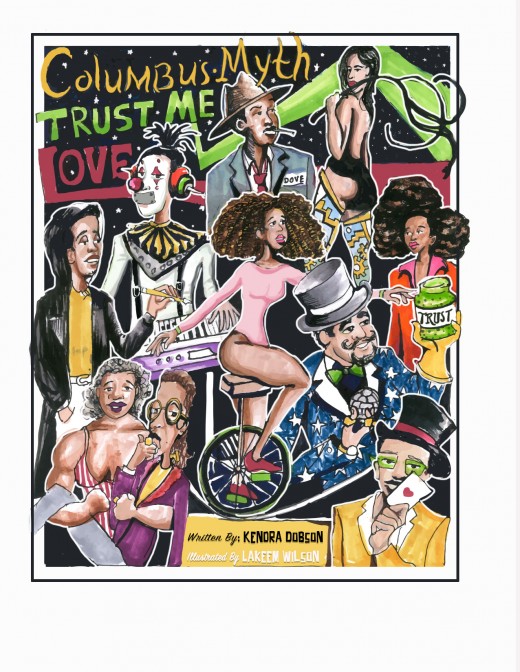
Orphan
For those of you who are my age, do you remember your first time online, or your first social media account? Remember dialup and those chatroom days, or oversharing on Livejournal, and all the dazzling html you crammed onto your Myspace page? I think I had so many videos posted on my Myspace page at some point that anytime you visited my page would crash. Then I learned I should code videos NOT to start automatically if I had more than one video per page. Learning curve. lol
Well, my Myspace days had special meaning to me because it reconnected me to friendships that my Y2K separated me from through distance. Yeah -- Y2K was actually the year I moved from my home town of Lake Jackson, Texas to Wilmington, Delaware. My Y2K. It was kind of the end of the world as I knew it -- but I didn't realize then because of how thrilled I was to get out and see the world, and start over at 12 years old going on 13 with a new... identity! Year 1: exactly what I wanted -- an adventure! Year 2: reality set in.
Moving from Texas to Delaware in 7th grade gave me a mini existential crisis from the culture shock. I learned, then, how words, even when both the same word and both the same language, with the same definition in the same country, can represent very different ideas. So even when you think you're speaking the same language, your brain actually isn't...
I learned that reality is subjective. Even my body as a social symbol changed meaning between one place and the other. My body as a symbol meant something different in one place than it did in the other. And, if I meant something different, was I someone different? Well, no... I wasn't someone different if I was by myself. But whenever I was with other people, yes. Kind of. Yes. I was someone different. Like H20 in freezing temperatures as opposed to boiling heat. The environment I was in changed my configuration. Like quantum physics says that matter does not exist until observed or measured, those around me who observed or measured me created the matter I became. So then I was left to ask, "who am I really; ice or steam?"
Let's call "ice" the East Coast. You know, 'cuz it's cold there. And, Texas can be "steam" 'cuz... yeah. So, East Coast has lots more Black people than where I grew up in Texas. And I'm Black. So, my Blackness is going to have different meanings between steam and ice. Or should I say steam creators and ice creators...??? Well, different meanings for others, and different meanings for me. For example, I happen to be more literal with the word "minority" because of where I grew up in Texas and my "group" being Black. Both places (South and East) consider Black people to me minorities. But for obvious reasons you can see how that minority experience will not have the same meaning when you take a look at the demographics. Lake Jackson, TX was like, 5% Black, and Wilmington, DE was 58% Black. "Minority" took on a different meaning in Wilmington, DE. It meant... "anyone who isn't White" in Delaware. Wilmington, DE is 32.6% White. Lake Jackson, TX is 84.36% White. You can see how I understood "minority" literally growing up in Lake Jackson, right? And, you can see how I, then, had to come to understand a different meaning of it after I moved.
Webster defines minority as...
Definition of Minority
(plural minorities)
1a : the period before attainment of majority (see majority 2)
b : the state of being a legal minor
2: the smaller in number of two groups constituting a whole; specifically : a group having less than the number of votes necessary for control The proposition was opposed by a minority of voters.
3a : a part of a population differing from others in some characteristics and often subjected to differential treatment the country's ethnic minorities
b : a member of a minority group an effort to hire more minorities
Take a look at 3b. A member of a "minority group." A "minority group" is a group of people with a percentage of total U.S. population in the minority. Black people are 12.6% of the total U.S. population. White people, by contrast, are 72.4% of the U.S. population. That would make my group (Black) a minority group. In Lake Jackson, that all made sense. In a place like Wilmington where White people are a literal minority of 32.6% but are not in a "minority group," and Black people are the majority with 58% but are part of a "minority group," identities and race relationships are much more complicated and complex. As ice, I was seen as a member of the majority who was part of a national minority group. But I grew up as steam being a literal minority. So, who was I?
This got even more complicated. Since I grew up with the national majority, I was seen as being "too white" or "not black enough." What's more, having shared a cultural upbringing with the national majority group made me more relatable to White people everywhere. I was more relatable to White people then others in my minority group who shared an upbringing with their group. Queue the guilt, because here comes all the complications of diversity programs and efforts to include minorities. Who do you think is going to get picked for some local diversity initiative if you have two Black people and one of them just seems to get you more than the other. And, no I wasn't referring to your guilt when I said "queue the guilt," I was talking about mine. When I was in middle school and high school the competition was so thick for that one diversity spot. Picture it. Even though White people were the minority, they still managed to make themselves the majority in powerful positions, work situations, school, etc., so diversity initiatives were still needed. Like I said before, moving to Wilmington from Lake Jackson was like jumping into a history book from the 1960s. Segregation was so bad, and it was like no one noticed. But yes, that spot set aside for "diversity" was pretty coveted. And, I'm talking about the figurative spot set aside, the unspoken spot set aside, and organization spot set aside, and more. All of them. Black people know this. There's this thing that happens when there are "too many of us" around. It makes people think that whatever you're a part of is a "Black thing." Aziz Ansari depicts this well in his first season of Master of None where he and other Indian actors are auditioning for roles... he ends up competing with one of his Indian actor friends for a role and someone suggests the idea that they might both be in the project... and Aziz is like, "there's only room for one brown person per show or else white people will feel alienated." Watch the episode. I highly recommend it. It's called, "Indians on TV." Anyway, I felt like in a place like Wilmington where White people were the minority, they already felt alienated, and were therefore more protective of their space. So its no wonder that in all the places I've lived I felt the most racism from Wilmington. But back to my guilt. Because this minority majority group felt protective while still being forced to "diversify" in order to fairly disperse power, they tended to lean more towards the minorities to whom they could more strongly relate. Minorities like me who were raised in majority white environments. I'm not saying that this was wrong, or is wrong... I'm saying diversity is complicated. All those people who want that "spot"... that one brown spot set aside for them in friendship circles, clubs, pictures, art projects, board meetings, diversity initiatives, whatever, whatever, whatever.... that TOKEN spot only had one opening, and this causes competition within the minority group. So now you see where "too white" or "not black enough" comes from. So complicated. I put my emotions about this tokenism thing into my character, Dido. Dido was raised in The Private District alongside cyborgs. Her parents are cyborg too, but Dido is purely human. She was never rejected from The Public District like her cyborg peers. You see, people who did not fit what The Public considered to be ideal were orphaned and given to The Private District with directions for fixing the problem. They were then given a mechanical addition to their body to fix this problem, making them cyborg, and prepared for a lifetime of work in entertainment. Their job as cyborgs is to entertaining the very people who rejected them in the first place. Dido was chosen by Columbus to take on the new star role because she's human, and therefore more relatable to the human Public District. As a relatable star, she'll bring in more Trust (currency) for the show. Listen to "Trust Me, Love" below.
Take a Moment to Think
What part of your life makes you the most divergent?
Listen to Episode 3
Diversity isn't what you think it is. There is diversity within the groups you pick from. I stressed over not being the right kind of black for diversity programs. So don't give me that "you took my white spot" bullshit. Excuse me. My impatience for that argument comes from my contempt for lies that lead good people to come to that conclusion on their own. I'll get to lies later. See, the trick to manipulating a population of people is to trick them into thinking that they came up with their judgment on their own. That way they have a false sense of ownership about their idea and they'll defend it thinking they're defending themselves. Ego. But that comes later. Anyway, I also struggled with always being the "diversity" pick because I was the only one, or the one most closely relatable to those who picked their "diversity" rep. That's where Dido's character comes from. Her character represents my feelings about being the representative for a community I didn't come from. Sometimes I felt that I was taking a spot from a Black person who needed that spot more than I did. I felt guilty for that, and angry at a system that got praise for having "diversity" initiatives when they really didn't pick someone from a diverse background, they just picked someone within their own community who was a different color.
But don't get me wrong. We NEED diversity. Do you need a unique perspective to get a job? No! Of course not. You need to know how to follow directions to get a job. Or, at least that's how it used to be. Now, things are changing. And when the world changes and starts spinning so fast that we can't see where we're going, it helps to have direction from a point of view outside of the twirling fog. Yes. You guest it! That's where diversity comes in handy. But, we need to know what diversity is first. Like I said, and I'll say it again, diversity isn't what you think. Diversity is bringing YOUR perspective to solve a problem. What, are you a white person from a very white suburb of Whitelandia USA? Well, traveling, getting to know people who aren't from where you're from, listening to them, seeing through their perspective, and walking along side them for awhile can give you a unique perspective. Yes YOU! Follow a road less traveled and YOU will have experiences that give you a perspective that's different from your neighbor.
You can't describe the real you to a society of people. They see you the way they see you, and if you see yourself differently then they'll make sure you understand that YOU'RE the one who is confused. So you end up keeping that part of you silent so it doesn't confuse your message. Some people might get caught up on semantics because you used a word that means something different to them in their brain because of their upbringing or experiences. I'll cover more of that topic in the "Civil War Explanatory" which explains Goose's character in Episode 9 of Columbus Myth. But that part of you that you keep silent because you may be misunderstood if you try to explain, will always color your perspective and your actions. That part of you is your hidden complexity. Moreover, hidden complexity IS diversity.
If I think of what it was like living in Lake Jackson, I honestly think "normal." To adequately describe it to you I'd have to think of your perspective or someplace different and compare where I grew up with that place. So where should I go mentally to compare? New York? Should I compare Lake Jackson to New York? I mean... New York City is where all your TV shows and movies are set, right? Those little cultural story boxes make it around every government line in America and reach overseas to living rooms worldwide. TV and movies, man. Those are our common stories. Our common mythologies. Not everyone knows Lake Jackson, TX or Wilmington, DE, but you've seen so much of it in pictures that even if you've never been, you know New York.
Take a Moment to Think
In what ways does your hero start out as an ORPHAN?
Wanderer
Right before I started writing this project, I interned for a reality TV production company in New York. It was 2008. My senior year at Drexel University. The recession hadn't hit yet. Twitter wasn't really a thing yet. I didn't have a smart phone. Facebook hadn't yet sold it's soul to all those companies who have all your data now. SOAP operas were still going pretty strong. The writer's strike had just ended and The Kardashians was only one season in. And this senator named Barack Obama had some pretty inspiring ideas about governing the country.
I heard him say once in particular that he was going to work on diversity programs so they included people in the minority group who were NOT like him and me, but were more like those for which the programs were actually designed. This man got it. He got it in a way that I hadn't seen anyone in the run for president get it before. I thought to myself, now here's a Black person who KNOWS what life is like for non-white Americans. He KNOWS the complexity that I live with and he was doing exactly what I promised myself I would do once I benefited from all this Token Trust (being the Token Black in privileged White situations because I was the brown one who was raised in their culture). When he won, I felt like I could be accepted by my minority group now. When he was doing well and my minority group was supporting him, I knew that left room for them to accept me too! They could see that people like me weren't all "Toms."
There's a part of me that feels bad for using a slur like "Tom" to label Black people who act against the best interests of their minority group and for the best interests of the White national majority. Being called a Tom, or being thought of as being a Tom hurts. I saw a short film once where this Black man was being harassed on a train by a White racist who kept calling him a nigger. The Black man was annoyed, but handled it like a champ. Just ignored the abuse. But then he was called a Tom and he lost it, reacting more emotionally when called a Tom than when called a nigger. When you're called a nigger, at least you're part of the minority group who's also living with that pain. That's why people who are in that minority group use "nigga" as a term of endearment. The term, "nigga" is recognition that you're part of the group, you know the struggle, you share the same pain, you come from the same place. "Tom" means the opposite. You aren't one of us. You aren't one of us, but you look like one of us. We don't accept you. You're untrustworthy. So there's a part of me that feels bad for using the slur, "Tom," but when you have conversations with Black people who you're convinced might have a Klan membership after your conversation, you can use the term with some strong confidence in knowing exactly who you're talking about. I don't feel bad about calling a racist a racist if they themselves are proud to be one. The Toms I'm talking about are proud to be racist against their minority group.
Moreover, you can wrongfully be seen as a Tom when you simply are Black and hold beliefs that are more similar to White Americans. Or, you're Black and live in an area with a very high White population. Or, you "talk white," or listen to "white music," and the list goes on. People assume. Which is why it was such an inspiration to see Barack Obama give speeches and speak to the American people capturing the hopes and dreams of all people without pandering to the White majority and going out of his way to prove that he isn't a part of the Black minority group ("Toms" go out of their way to show they aren't "Niggas" and before Obama this is what people were used to seeing chosen Tokens do). This Token was different.
Take a Moment to Think
What situations in your life have issues that the mainstream might not know or understand?
Anyway, NEW YORK. You know New York from all the movies. We've established that. It's our magical setting we can all go to mentally when we want to meet on common ground. Picture it. Yes... PICTURES, darling. YAAAZS... I'm working in New York before the recession, and interning for some dope companies. I'm writing reality TV treatments and coverage of submitted treatments at one place, and archiving some amazing Muppet material at another. Was 21 years old, out on my own in the Big Apple, making connections... oh! I got a meeting with an ABC Daytime SOAP producer, and I told him of how I'd taken a SOAP writing class the semester before. He was super encouraging, but he thought I was too young to write for them. Said they hired someone my age before and it didn't work out because she didn't have enough life experience to contribute to the show. I wanted so badly to share how being a Black female minority minority for your formative years, then moving to a place with a Black majority and a White minority majority made me so much more socially experienced and emotionally complex than the average 21 year old. But, this was before Barack Obama's presidency and our national collective conversation about the complexity of identity in this country and White privilege and so on, and I knew he wouldn't understand. That's how everything was when it came to talking about something the mainstream didn't see in their collective narrow gaze. You just didn't talk about it because you knew they wouldn't understand. I came up with the term "Publizenego" for the things you had to do to, I guess, cover up the truth so to not freak out your "Public Citizen." Publizenego grants you more Trust. Perm your hair straight (maybe even add a weave or wig), smile and nod when they say something about the people your image represents to them -- even though their perception is so completely off. Do the same for slang or music references that you don't use or don't know -- they think you know so if you react normally to something you don't understand they'll assume you were offended and then you have to deal with them labeling you as "too sensitive," so just pretend you know what they're talking about and then look it up later. You know, "Publizenego" stuff.
I had so much hidden complexity. My complexity was the force that pushed me to write. This was why I was here looking to start a writing career in the first place. But, there wasn't really a category for what I wrote. You see, in the industry you have categories and genres and such. Its for marketing purposes. You have to know your audience so you can sell directly to them. But who was my audience? This is where it got tricky with those diversity writing programs. Who was MY audience? I couldn't describe my writing as writing from a black perspective (even though I was) because people would think of the kind of Black characters they saw on TV, or read in literature class. All of that material, again, was out there because it had a clear audience. But who was MY audience?
Take a Moment to Think
Your character what first orphaned. You already chose what made that character orphaned. Now, your character is wandering around looking for meaning, making mistakes, etc. For what are they looking?
The whole thing was just maddening. I have a unique voice, a unique perspective, and its unique because it comes from someone living a Black experience, and this Black experience is a perspective of OUR lives that ALL of us can benefit from. So, isn't my audience just... all of us? But how do you market that? At the same time that I was wrestling with all of this, the recession hit, entertainment companies were downsizing, and the job I thought I would have once I graduated school was no longer open due to these changes. Perfect. No... actually... it was perfect.
I decided to step out of the whole manufactured game of marketing and genre and just write. My senior project was due too, so I had to come up with something anyway if I wanted my Bachelor's of Science in Screenwriting and Playwriting. With my New York experience on my mind, and Obama gaining support, and everything I'd learned about reality TV, human nature, crazy New Yorkers, crazy people in general, and all of us who think we're sane because we've surrounded ourselves with nouns that stroke our ego, I started writing what is now Columbus Myth.
I started with Digits. He was a clown who manipulated information that people read online in order to control their actions in real life. I got this idea because while I was writing Twitter like... took off. Facebook also changed around this time, and sold data to companies. The digital landscape was changing. And remember, I knew all too well how different locations understood concepts differently depending on how they were raised. Remember Ice and Steam? Semantics (I'll get to that one in Civil War's Explanatory). The whole set up seemed to me like a disaster waiting to happen. I was scared. So I wrote a thriller with a villainous clown who represented my fears about what the internet was becoming.
Now, there were some good things about the internet that I was pleasantly surprised about. Like, that whole problem with needing to define my audience the way that it had been defined for decades. Solved! Look at Issa Rae. Producers told her an audience wouldn't want to see the upper middle class Black female stuff that she was making and she could prove them wrong by showing them how many YouTube views she was getting on her series Awkward Black Girl. Or, even the election of Barack Obama. They used a grassroots campaign that took advantage of communication, and getting around "The Public District's" old fashioned marketing. Our national conversation about race throughout Barack Obama's presidency was lead via the internet as well. People like me could finally publish work based in reality without having producers tell them their audience didn't exist. I had conversations that I NEVER thought I'd have because before that I just knew people wouldn't understand or they wouldn't care. I was able to learn what my hair looked like for the first time. At 22, I learned what my hair looked like without being chemically processed, and I learned (from youtubers) how to take care of it and style it, and from that I gained a new pride in myself and my image, AND felt like I was part of a community! I didn't have to use Publizenego nearly as much. I could just speak the truth, and physically be and live in my truth. And I was able to see that so many other people had the SAME views as me, and had experienced the same things as me! I could finally see it! MY COMMUNITY!!!! Instead of competition for that one spot, we were all given a voice ONLINE!!!
I created Mona's character next along with Paul and Castor, and named them after Castor and Pollux the Gemini twins of Greek Mythology. Mona was my protagonist who was dealing with drama from men. Paul represented men who were narcissistic but honest, and Castor represented men who were seemingly the nicest guy ever but manipulative and deceitful. Both abusive. I thought it would be interesting to see Mona torn between these two Malvolios who want to rid the world of human sin in each their own way, while Digits the clown was out moving communities of people around like his own puppet show.
Then came Dido and Justin. The teenage couple who would die first in this thriller before we're introduced to Mona's story. They were both rebels. I chose the name Dido because her character started the whole story -- I thought of her character as a representation of my upbringing -- and that whole "Dido" experience of being a part of the minority group, but because of circumstances that made her relatable to the group in power, not accepted by her group and, therefore, caught somewhere inbetween. Its a lonely experience so I imagined her to have Justin as a partner she valued as her only confidant. But anyway, back to her name. I named her Dido after the Goddess who founded Carthage in Greek Mythology.
Then my focus changed. In addition to writing a thriller, I thought I could write something else... because the ideas kept coming. Dido's parents Goose and Einstein came next. Goose represented earth and Einstein represented spirit, electricity, sky, and the cosmos. I think with everything happening and all the questions that arose about epistemology (the scientific study of how to know how you know) because of the internet, and the election of our first Black President, and seeing White people dumbfounded and finally asking questions that... you just thought would have been answered in 1st grade... but no. Seeing that smart people in high positions of power know NOTHING about people of color outside of stereotypes... all the ignorance coming out... Seeing them question who they were... just because the President was Black. Astonishing. So I started reading more about anthropology and noticed that though the science was intriguing, no one really studied "whiteness" in anthropology. What was the psychology of a person who believed themselves to be "White?" What did White mean to them? I had the time since we were in a recession, so I took it upon myself to explore this idea. Goose and Einstein represented the relationship between belief and truth. Belief became our origin myth as Americans; our American identity. After a lot of deep thought I concluded that this identity was what whiteness is. And I created Columbus the Ringmaster as a character to represent whiteness (White Supremacy). Once I had that, every other character needed a circus act as well.
I went back to Castor and Paul first. Named after Castor and Pollux, these two characters are one another's foil, but also entangled by power through their connection. When researching circus performers I came across a description that presented the Magician and Juggler with a similar relationship to Castor and Paul. The magician, moreover, was a role that required hiding slight of hand to delight an audience, while the juggler entertained his crowd by showing his skillful moves. Perfect! I made Castor the magician and Paul a juggler. Later, I decided Paul should be the detective chasing Castor and Columbus, and therefore needed to make him a Public Citizen. Spoiler alert. Eventually Paul does become cyborg and his juggler characteristics come out.
Since Goose represented religion and language I made her The Strong Woman, and her husband Einstein needed to be similar to her, but opposite because he represented truth, cosmos, energy, "all," the "god as all things" concept... and The Androgyn seemed to be the perfect fit for him.
Speaking of language, since I had a character who represented language, I also wanted a character that represented chaos. No order. No direction through narrative, words, and meaning. This made me think of Batman's Joker character. So I went back to the very first character I started with. A clown. Perfect, because there are clowns in circuses so it all works together. Digits the clown.
Mona was from the Public District because she's my "normal" character who journeys into the unordinary world. So she doesn't have an act, but I made her a teacher for CoShow Academy. She'd teach acrobats like Justin and Dido, who were now going to be fixtures in this story instead of the rebellious teenage couple who gets killed off in the first 10 minutes of my thriller. And, Justin and Dido were now a tightrope walking act, which gave me room to go into both of their backstories. Dido's backstory became "Trust Me, Love," and Justin's backstory became, "For Lynda." "For Lynda" was the first production I made the year I moved to Austin, TX in 2014. By 2014 I had been living with these characters and developing their backstories and the futuristic world in which they lived for about 5 years. I decided to call the story Columbus Myth, and start producing... something. Just jump into it. I'd been thinking about it for so long, and writing short stories that never saw an audience for half a decade. In college I started a radio drama show that aired old radio dramas along with modern audio drama and fiction podcasts. Sometimes I'd play Broadway show tunes. My show was called MADdrama on WKDU 91.7fm Philadelphia and it ran for about 3 years. So when I finally decided to do something with this Columbus Myth story I thought, why not produce an audio fiction series. I ended up making some friends in the process. My intention was to record the whole series in, like... at most a year. I wasn't aiming to make anything too special. I just wanted to create SOMETHING out of this Columbus Myth story I'd come up with because I just thought the characters were so much fun. It was fun to dream up. "For Lynda" was definitely a little rough because I did all my own editing, and did the foley work with a new friend, Jason Bostic. The acting was amazing! But, It was all original foley work. haha... Which was fun to do, but... well, episode one was an experiment. But after we completed production of episode 1; part 1, we had something to share when we talked about the project. Having something to share got us some help where we needed it. I was able to get some feedback on the script and hear what kind of writing would work better in audio form. Some things in "For Lynda" I would DEFINITELY go back and rewrite and re-edit so there aren't so many pauses and spaces between lines, but it serves it's purpose. I intended the audio drama project to be a sloppy first draft that just so happened to force the project into the world. And, I got some technical help sound mixing to make part 2 of "For Lynda" and everything after that better. Listen to my sloppy first draft (that I'm proud of), "For Lynda," below.
Listen to the Beginning -- It's Not Perfect. I hope this motivates you to get started. Over time you will get better.
We jumped ahead a few years. Let's go back to 2009 when developing the initial idea for Columbus Myth. I thought of having some ghost of oppression who would kind of live within the Ringmaster's world. I wanted a character who could directly show the effect of living according to oppressive rules. I thought a lion tamer, or animal tamer would be perfect here. And thus Lynda the lion tamer was born.
Take some time to think of YOUR hidden complexity and what kind of characters could represent that part of your life.
Lynda's backstory became, "Scientifically Criminal." Listen for an example of below.
Listen to Preview of Episode 2
Take a Moment to Think
How would you construct a character who represents a divergent theme in your life?
So in all I had Mona, Dido, Castor, Paul, Justin, Lynda, Columbus, Goose, Einstein, and Digits. Each one representing some complexity within my own life.
So, why was I so passionate about writing this project? It simply gave me a clear canvas to start from. I could write stories from MY perspective instead of first using a paint-by-numbers printout layered overtop of one. That paint-by-numbers being... whiteness. Or, the white male gaze. Or, what other people thought "someone like me" would write... Or just, the way the majority group saw the world, because the way the majority group saw the world was "mainstream" and most profitable. Put simply, what most people, BUY into. Trust.
My project deconstructed my reality, and reconstructed it into something that was understandable... recognizable for a mainstream palate. I could write about my reality of growing up a literal minority then trying to live a life in a different environment as a majority minority where the minority there is a majority of the whole country and therefore holds more power making someone like me their Token Trusted pick out of my majority group who doesn't accept someone like me, because the system is using someone like me to keep my minority group out. And I can write about my guilt, and my efforts to make things right, and no one can disagree with me or say my perspective is invalid because, hey... these are all just wacky fictional tales with cyborg clowns and celebrity slaves who entertain their oppressors to earn Trust. I'd rather write something that everyone can relate to while still pulling from my own experience than detailing my own experience. I mean, the fun isn't in where I come from, the fun is in creating a story based off of where I come from. Its not the canvas its the painting we enjoy. But creating a new world for Columbus Myth provided me with a canvas so that I could write what I know.
Warrior
When you're thinking about the society that you are building for the world of your story, dig deep into what bothers you about the society in which you live.
lies, lies, lies, lies, lies, lies, lies, lies... is what I despise the most. These are our obstacles. These are the things we so often find ourselves fighting against. Take the 2016 United States Presidential Election for example. Propaganda, online messaging, and Fox News to name a few spread lies in order to simplify complexity to create a "bad guy" out of ideas that were not simple for a suburban raised White person to understand.
A Message from the Right:
If you don't want to be controversial, be a white man. Be a heterosexual white man if you want to be a good conservative. If you can't be a white man, you're strange. Get used to it. Try your very hardest to be a white man, and we will forgive you for not being a white man. If you're a woman, don't scare the white men or the non-white men who we have forgiven, and we'll forgive you for being a woman. If you are a white man and you're uncomfortable that everyone who isn't a white man is considered abnormal and you make this discomfort known, you're a liberal. Get ready for people to make up lies about you. And that goes for anyone else who isn't a white man and has made the dishonorable decision NOT to try your very hardest to be a white man (or have chosen NOT to refrain from anything that would scare white men if you're a woman). You are all liberals. Get used to that label.
A Message for the Left, from Me:
Shaming doesn't work. Mainly because shaming comes from your own ego. We are all socialized to learn these racial codes as a language. For whatever reason you're privileged enough to know better. Think of this as a privilege, not an extra notch of intelligence -- maybe that'll help you in seeing the bigger picture. Its not about YOU knowing better than THEM. Its about you understanding the code so you can see how our society is manipulated. Be woke enough to understand the code and know how its used and your god-given intelligence (minus your ego) will guide you in communicating. In my project I call this Publizenego. The Private District must appeal to the ego of The Public District in order to earn Trust (currency).
How did I learn this? Haha. Experience + Black wisdom.
It is natural to fall prey to your own ego. You want people to know how smart you are, and how evolved you are, and how good you are, and by comparison to that other guy over there... hey look at how much better you are than them...
Recognize this in yourself because this is your achilles heel. Just as you are able to get by with Publizenego, so are those who oppose you. Privatezenego, I guess you'd say.
In Hidden Complexity, Mona falls for both the Juggler and the Magician and she can't figure out who is best for her. They both seem the same, like one is Superman and the other Bizzaro, or one Christ and the other the Anti-Christ, or anytime you see the trope in TV where the good guy and bad guy look exactly alike and both claim to be the real Slim Shady. The difference between Paul and Castor is that Paul tells Mona his absolute true thoughts never sparing her feelings, and Castor tells Mona exactly what she wants to hear. Spoiler alert: Mona ends up choosing Castor because she wants the aspirational pretty picture instead of Paul's truth that is only his perspective of the truth anyway. You'll have to follow Columbus Myth to find out how her decision pans out. Listen to "Hidden Complexity" below.
Listen to Hidden Complexity
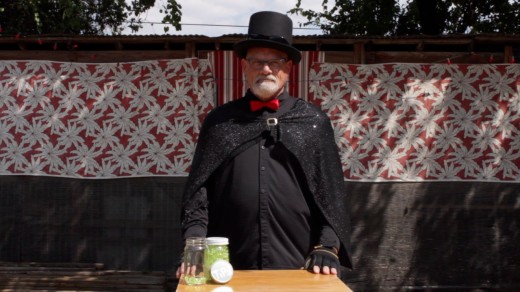
This blog has been a way for me to show my work, so to speak. So often people think that I don't have the experience necessary to come up with these complex stories. Depending on who you are and your perspective, I've been seen as being one of those who has had everything given to them either because you see my success and think a Black person couldn't have earned it, or you don't understand my hidden complexity so you assume I'm riding on my looks in another way. Just look at what happened after our first Black President, President Obama served his two terms. Years of lies, lies, lies, lies, lies, lies, lies, lies, lead to a complete fabrication and followers who voted for a New York reality television star to roll back his work like a bratty child knocking over a classmate's castle just because that classmate successfully built one. No matter how flawed a candidate, Donald Trump was New York, the city we see in TV and movies. He was U.S.A's mythology incarnate. Fake, but aspirational (to those who don't know the real thing.) Some people see my success and think I was handed everything from my parents like The Channel when they assumed Dido would be Trusted at Commerce because she is human. I come from an upper middle class background so some of the discrimination I face is different than stories usually told.
Look again at a public figure like President Barack Obama. He was a candidate who ran for president and he happened to be black. He was a good candidate. He was inspirational, respectful of the public's intelligence, a good family man with smart ideas about governing the nation. And he happened to be black. Once he was elected President I saw people argue that he was only elected because he played the race card, or because he was black -- and I saw people use these arguments interchangeably like they were one of the same. This bothers me because I sure as H-E-double-hocky-sticks know the difference between OTHER people making a big deal about me being black, and me personally saying something about it. Barack Obama did not play any kind of card. If he ever spoke about race during the election it was in response to what the public was saying about him, and what the public started talking about because he happened to be black. Look at all the drama that came out of a president who happened to be black... at times during my teen years and early twenties I remember feeling like a walking, breathing conversation piece because I'm black but was-raised-in-environments-where-I-was-the-only-black-person-around (in other words, a Token). The same patterns of lies, lies, lies, lies, lies, lies, lies, and conversation and praise on the other side happened. This is just a pattern that we all live, and with U.S.A's first Black President everyone got to see what happens to Tokens.
We can't shrink away from living our lives and achieving our goals for fear that people will make a big deal out of our blackness, but at the same time when you're black you are aware of this phenomenon. As a warrior, my sword is my pen. Writing is my way to fight against lies. But, as I said in this passage, I wrote this blog to show my work because I wanted everyone to know where I got my ideas, and that I have done the hard work to develop every detail of this story. Though that desire is valid, I need to also admit it comes from ego. Just as Mona chose Castor because Castor told her exactly what she wanted to hear, I wanted my audience to understand that this labor came from pain and crafting of my own. So often the structure of the world we live in does not validate that black women write science fiction.
So, though my weapon is writing and my warrior pose grounded by experience, ego is what I need to sacrifice in order to truly win. But how do I stay true when fighting against lies times infinity?
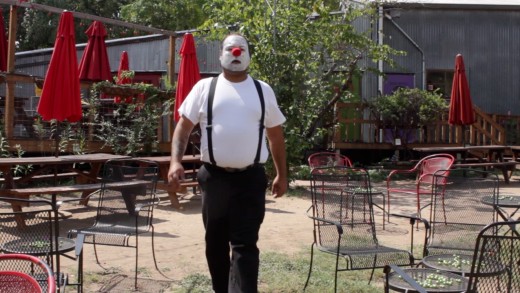
Martyr
What do I do? Between all these opinions, how do I pick my side? Choose true north. I figured out early that most opinions are circular. You can start with an argument on one side, argue your point on the other.... come back to the first side... it just keeps going round and round. Building teams and sides is false to truth. So look inward to "true north." What I mean by that is, everything that I would tell my childhood self or inner child is "true north." All of that information is real information because I'm responding to pain that I have experienced myself and am providing answers to problems that I know are real. In order that is; Pain, search for answers, find answers, fight to bring what I've found into the public sphere to help others, and finally understand that I will be misunderstood by somebody. Orphan, wanderer, warrior, martyr. Yes, that brings us to our last passage; martyr. Though my weapon is writing and my warrior pose grounded by experience, ego is what I need to sacrifice in order to truly win. I must always know that I will surely be misunderstood. There is no pleasing everybody. In order to choose life I must stand on ground. Belief is solid ground and belief is toxic to truth. So, though I'm a warrior for truth, I must sacrifice my ego's desire to have everyone see my truth as theirs as well. When doing this, one will truly win. In other words, Trust Yourself.
What is YOUR Hidden Complexity?
Could you write speculative fiction based on your unique experiences that could predict the future?
Stay In Touch!
I'm on social media. If you write some stories, let me know! Good luck!
Visit my profile to find Facebook and other social media connections.

